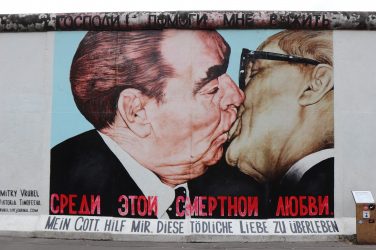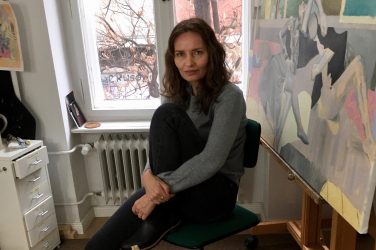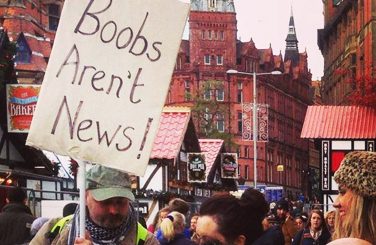E&M‘s Nicoletta Enria recounts personal and intimate experiences of migration and integration – and explores what this tells us about how to practice integration.
A few months ago, I found myself crying at my computer screen at a simple tweet recounting the experience of the Korean migrant in the US. Whilst the tale wasn’t as harrowing as the experiences of children ripped away from their families at the US-Mexico border, Afghan children detained in merciless conditions at the UK border or Italian-sanctioned Libyan detainment camps, it recounted a simple tale of the difficulties of being a migrant. Whilst migration is always discussed by fluctuating statistics, tales of murder, crime, danger and tragedy – we often gloss over the human dimension of what it is to move and to feel foreign.
Whilst the tweet is no longer available, it told the story of a young Korean child who spoke no English and felt completely powerless in his class exam. A teacher came to his aide by finding a Korean speaker to translate the questions, and consequently his answers. Two important facts stuck out to me: how powerless and absolutely terrifying it is to be a migrant with minimum language comprehension and how easy it is to make someone feel accepted. This really made me reflect, for all the talk of ‘integration’ we are still really only talking on why it has failed – not on what it actually is. What ideal of an integrated society are we even striving for, and why aren’t we getting there?
Two important facts stuck out to me: how powerless and absolutely terrifying it is to be a migrant with minimum language comprehension and how easy it is to make someone feel accepted.
To begin with, the question no one dares to ask – what even is integration? On the 14th March 2018, UK Communities Secretary Sajid Javid announced that Britain “cannot ignore the fact that in too many parts of our country, communities are divided“, alongside a £50m investment in integration schemes. This statement is indicative of a long-running discourse in the UK of integration as a tool to reunite a country divided between mainstream and fringe communities – yet discussing them as two distinctly different entities.
This is an understanding of integration that is not unique to the UK. Indeed, across Europe, integration is understood as assimilation – rather than as providing equal opportunities to minority communities and fostering an atmosphere of mutual respect and dignity. This usually also delineates an understanding that the host country’s culture is superior, and thus the minority or migrant must assimilate into this, shedding their own. For example, in Germany migrants and asylum-seekers were provided with courses on how to flirt with women in Germany. It is undeniable that some migrants, coming from potentially different cultural contexts, may have a different understanding of inter-personal relationships (although it is also very important to underline that not all do and this is a sweeping generalisation we must get rid of). Yet gives off the impression that Germany has a perfect understanding of gender relations and women’s rights. Why aren’t these classes available for everyone? Or, why aren’t these messages that we are teaching every member of our society to abide to? By selling this as an integration measure we propagate an understanding that Germans have a superior respect for women than there is any country of origin asylum seekers may come from.

So, the way we understand integration is completely wrong. Across Europe, we have created an understanding that integration is a bridge to build between native and alien communities. Instead, integration is a multilateral process that involves me, you and everyone present in whichever community you may find yourself in.
Integration is not merely moulding people perceived to be as ‘alien’ to fit into normative notions of native, host culture – this is forced assimilation. Whilst I very much enjoy being influenced by British culture and performing some stereotypical British acts, I don’t believe this is what should qualify as being fully-integrated. I think a part of it should be an interest in the host culture, but this should be one of inter-cultural exchange. I do understand that when I moved to Germany, the UK and finally Belgium, I didn’t want to ignore the local heritage and hide out in my room eating pasta just the way I like it. But like I opened my doors to new cultural influences, so the national host culture should open its doors to the myriad of cultural communities that influence it.
Integration isn’t a one-way street integrating aliens, nor a two way street of a dialogue between minority and majority communities – but a multilateral process in recognising cultural plurality and the diverse richness that this brings. Integration is about cracking open fixed notions of what it is to be British, German, Romanian, Spanish or European. It’s about creating these as fluid categories that change alongside the changing demographic and cultural composition of the country – allowing for hybridity of identity and experience accordingly.
Integration is not merely moulding people perceived to be as ‘alien’ to fit into normative notions of native, host culture – this is forced assimilation
Most importantly, integration is not an other-worldly entity to be imposed on our society by the government, EU or international bodies. Integration can very much begin with you. Important integration policies that we need the government for are those that work to provide minority and migrant communities, who suffer from the hurdles of linguistic difficulties, culturally translating skills, translating qualifications to make them valid and most importantly xenophobic and racist prejudice. Yet, integration is also something you can practice in your everyday life. It’s easy to hurl words that our societies are torn apart, we are divided and government is not promoting a socially cohesive society. I mean you’d be right, but integration starts with you. Reach out to alienated, vulnerable members of your community – a smile, a greeting and a few words with respect and dignity go a long way. Attend events in your local community – hell, even organise them if you feel inspired enough. Engage and most importantly send the message: you belong.

The story of the Korean migrant rang so true to me, also because it mirrors a similar experience of mine, having moved to Germany at the age of 5 and taking a test in English for my school – speaking neither German or English. The powerlessness and frustration that is felt in these moments are feelings that we need to remember in these times where integration is something we wish to impose, and eulogise. This was one of many experiences, others include being asked where my father’s pizzeria was or if I liked Berlusconi at the age of 5 at the dentist, constantly being asked why my accent sounds the way it does (with copious guesses as to where I could possibly be from). Let’s not try and see this world through a national lens, but rather celebrate the cultural plurality and diversity that comes with migration. And I think then, when we understand that nobody is condemned to not belong, can we finally get a taste of what integration is.
Cover photo: Charlein Garcia (Unsplash)










